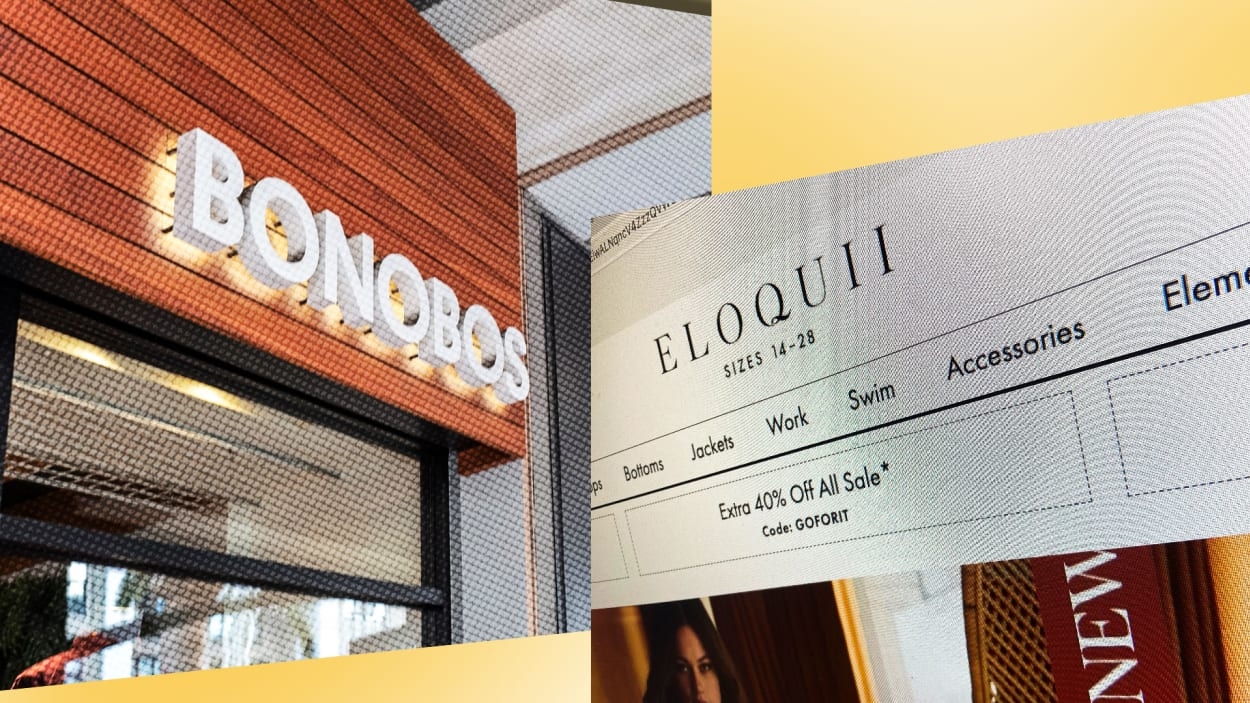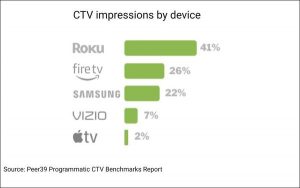When Walmart announced today that it was selling online women’s-apparel brand Eloquii to FullBeautyBrands, just days after selling online menswear brand Bonobos for $75 million to a brand-management firm and the retailer Express, it marked the end of an experiment that started in 2016. That’s when Walmart bought e-commerce company Jet.com for $3.3 billion, in what was then the largest-ever acquisition of an e-commerce company.
In the wake of the Jet.com deal, Walmart went on a mild spending spree, buying online womenswear company Modcloth, outdoor retailer Moosejaw, Bonobos (which it acquired for more than $300 million), and finally Eloquii for a reported $100 million. This stable of digital-native brands, the argument then went, would help distinguish its e-commerce site from Amazon, and give it an entrée with younger, more affluent consumers.
But that rosy scenario never materialized. While the brands themselves did fine (Bonobos today seems very much like the Bonobos of five years ago), they never became an important part of the company’s business, and as the years passed, Walmart wound them down or sold them off one by one. Eloquii and Bonobos were the last to go, and considering that Walmart sold Bonobos for $235 million less than it paid, it’s easy to see these divestitures as a clear admission of failure, the equivalent of a middle-age man selling the sports car he overpaid for during his midlife crisis.
But that’s to take too narrow a view of what Walmart was trying to do by acquiring those companies, and what it accomplished by doing so. In fact, when you look back on where Walmart was in 2016, and where it is now, those deals look like worthwhile and necessary gambles for a company that felt itself to be treading water and that needed a way to jumpstart its e-commerce operations. Rather than being about expanding Walmart’s operations, those deals were better thought of as what are sometimes called acquihires: acquisitions that are done primarily to bring new talent and new knowledge into the organization.
Historically, acquisitions were thought of mainly as a way to acquire concrete assets—patents, technologies, manufacturing plants, and so on—or a way for the acquiring company to leverage its know-how to improve the acquired company’s operations. But more recently, it’s become clear that acquisitions are often about importing expertise and talent that would otherwise be hard to get.
Acquihires are most common, of course, in the tech industry, where the strategy dates back at least to the 1990s, when companies like Cisco made acquisitions of small startups a routine part of their business. But Silicon Valley giants took this approach to another level in the past 15 years. At one point, Google was buying at least one small company every month, while Facebook ran up a long string of deals. And the striking thing about them is that many of the deals were not made to expand product offerings. Instead, they were made to acquire talent. As Facebook’s Mark Zuckerberg put it, “We buy companies to get excellent people.”
At their worst, acquihires are an anti-competitive tool, with big companies buying small ones to keep them out of the hands of competitors or quash potential future competition. But at their best, they’re a way for big companies to inject fresh blood, and new perspectives, into their operations. As one of the few academic studies of the phenomenon puts it, they help established companies “combat organizational inertia via exposure to new innovations or business models.” And that’s the right prism through which to think about what Walmart did, in part by becoming more like a tech company in its approach to acquisitions.
Buying Jet.com, for instance, gave Walmart Jet’s management team, including its CEO Marc Lore, who ended up running Walmart’s e-commerce operations until 2021. Similarly, with the Bonobos deal Walmart added people, including most notably company founder Andy Dunn, who stayed until 2020. He had solved what seemed like a very hard problem at the time—how to sell made-to-measure clothes online, at reasonable prices—and built a brand that customers were deeply loyal to. Even if the concrete benefits of Walmart’s association with Bonobos turned out to be slim, the deal gave Walmart useful insight into so-called digital-native consumers. (The companies now acquiring Bonobos and Eloquii, by contrast, are fashion retailers for whom the deals are a way of expanding their existing product lines.)
Now, on the one hand, you might say there were surely cheaper ways to acquire this knowledge than paying hundreds of millions for Bonobos and billions for Jet. And there’s no question that Walmart significantly overpaid for these deals. But it did so in part out of a sense of urgency, a feeling that it was falling irreversibly behind Amazon online, while its core retail franchise was stagnating. And that sense of urgency was not misplaced.
Correlation isn’t causation, of course. But what is true is that Walmart’s e-commerce business took off after these deals were done and after Walmart added Lore and Dunn. In 2017, e-commerce was an afterthought for Walmart—it had just 2.6% of total online sales, and e-commerce was less than 5% of its business. Over the next six years, it more than doubled its share of online sales, and e-commerce now accounts for almost 15% of total revenue. Walmart has even been able to make inroads with more affluent customers: 28% of consumers with incomes of more than $150,000 a year now subscribe to Walmart+, its version of Amazon Prime. It’s still miles behind Amazon, but at least it’s in the game.
Now, it’s possible all of this would have happened if Walmart had saved itself some money and not overpaid for Bonobos and the rest. But it’s hard to fault a big, staid company for reaching outside its comfort zone and bringing in people who have expertise that it lacks. Sometimes, it turns out, buying the overpriced sports car is the smart thing to do.

(25)







